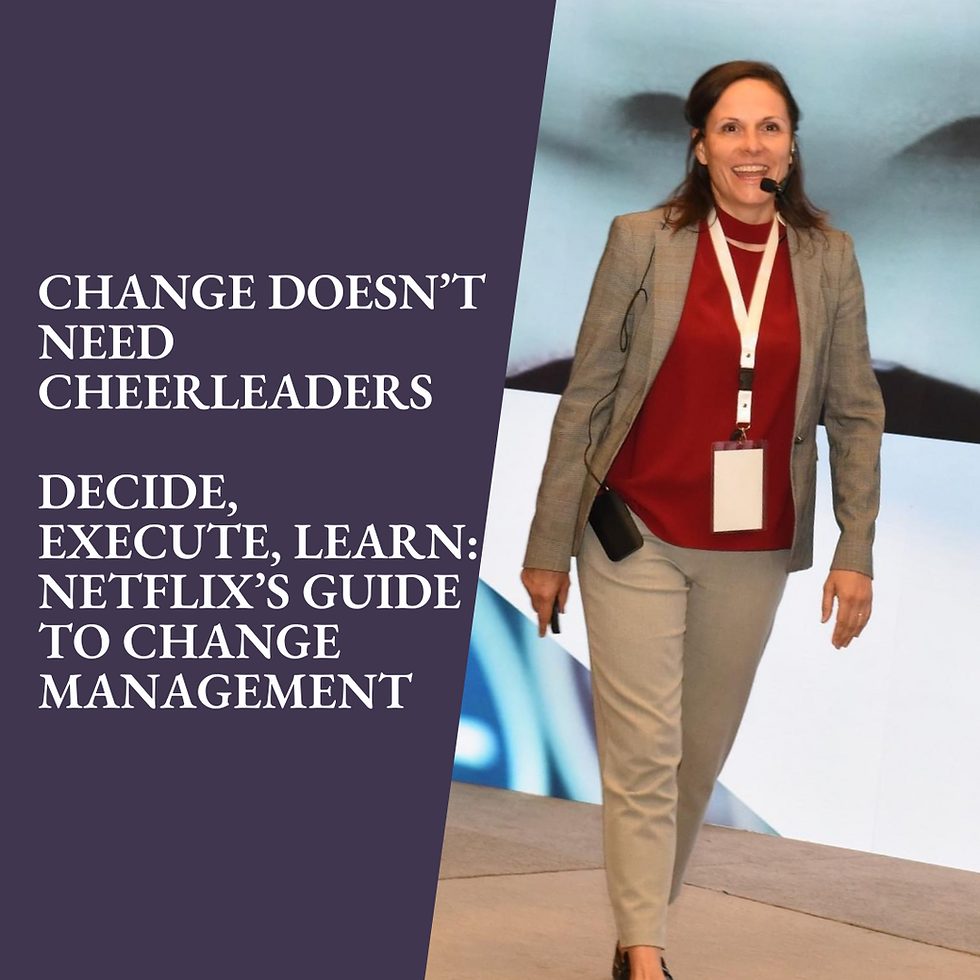Digesting the Truth - Leadership
- Szilvia Olah

- Jan 22, 2023
- 4 min read
“You can tell much about a man's character by how much truth he tolerates” Nietzsche.
Where does this sentence leave us in the work environment where there is hardly any truth ever being said? Do we lie? That too, but rather we don't speak the truth!
The silence in organisations from both employers' and employees' sides is deafening. Most reports, surveys, and data focus on why employees don't speak up, which are all punitive or dismissive in terms of responsibilities. These are:
- Fear that reporting may cause bad blood and acrimony at my workplace
- Fear of losing one's job
- Thinking it is not my business or everyone already knows, so why should I take responsibility?
- Not believing that actions will be taken.
But nobody talks about the character of those leaders maintaining or rather requiring silence.
What does it say about them? Not an awful lot of good. It can be a character flaw - limitation or an imperfection innate to one's personality dynamics - when one cannot face the truth. Those leaders don't solicit information and often actively shield themselves from any data or information that presents opposing reality to their own. They like to stay wilfully blind, not because it is easy, but because they might not have the character to face the truth.
We have seen such behaviours way too often. When an employee comes up with an idea to solve a problem but is told "it's ok" because implementing it would require the manager to admit things were not working. When HR says, "don't record exit interviews" because it would unveil areas of failing them. When engagement surveys are out and to every employee's feedback, the management has an explanation. When people are labelled as "troublemakers" when trying to point out flaws so they can be improved. When we run around in circles dealing with the symptoms rather than naming the actual problem. Or when people cry, rant, knock chairs over, or counterattack upon hearing the truth. We have all seen public emotional meltdowns at work caused by the truth. As they say, "the truth hurts," and understandably, we rather avoid the pain, but at what cost?
A recent study of 27,048 executives, managers and employees called "The Risks of Ignoring Employee Feedback" found that very few leaders encourage, or are open to hearing, suggestions for improvement from their employees. For example, only 24% of people say that their leader "Always" encourages and recognises suggestions for improvement.
Inviting feedback for improvement takes humility, the freedom from pride, arrogance and big ego. It also takes the person to have a healthy relationship with oneself. I often found that knowledge and expertise are also crucial in one's ability to invite ideas and be challenged. Managers and leaders who lack in-depth expertise in their respective fields hate to be challenged because they do not have sufficient knowledge to examine the problem from different angles. So they easily get agitated and dismissive of everything they don't understand.
We hate hearing the truth, even if it is for our own benefit because it creates an unpleasant mental tension known as cognitive dissonance. We hate it because it forces us to eat humble pie. The truth might hurt our self-esteem or require us to re-evaluate our competence, mindset, or even the value we bring to the team, family, and friends. The truth might jeopardise our jobs (Read the Bullshit Jobs book. If we were honest about our jobs, 50% of us would be jobless immediately, but we chose to hide from reality.), social status, relationships, and self-validation derived from titles.
These are all very painful, and we want to avoid them. Our brain doesn't like information that questions our self-esteem, destroys our beliefs, makes life more difficult, makes us feel bad about ourselves or threatens our status. This is when we reject others, ideas and opinions and stop listening.
Listening requires an authentic character, a mask-less version of self that is so comfortable in his/her own skin that the protection of self is no longer needed. Why? Because authentic people are true to their own personality and values regardless of external pressure. They are honest with themselves and others, take responsibility for their mistakes and willingly face the consequences of their actions. An authentic person is self-aware and accurately assesses his/her strengths & weaknesses. An authentic person is emotionally well-regulated and able to engage in an appropriate level of emotions. Authentic people are unflappable, and things don't get to them because they don't tend to personalise things. They would say, "that is a fair criticism", and look at things from an unemotional and rational perspective. They can do that because they are free from self-protective and validation-seeking behaviour. I always say, challenge an insecure person, and you are done.
So next time you think your workforce or team is very quiet, check how much of the truth your leaders can handle. It may not be the employees' fault that they don't speak up, or it may be their response to the character flaw of the leader.

.png)



Comments